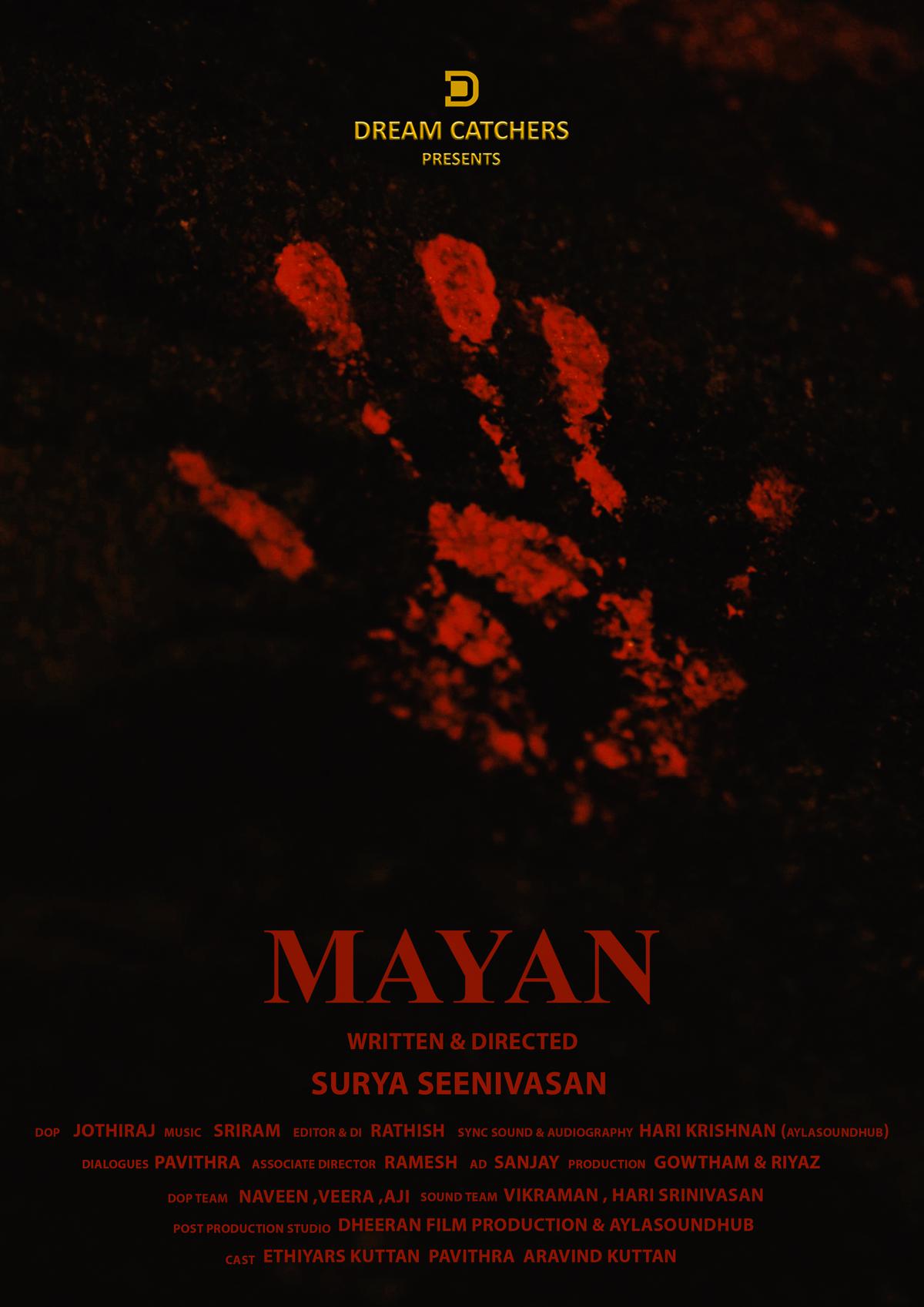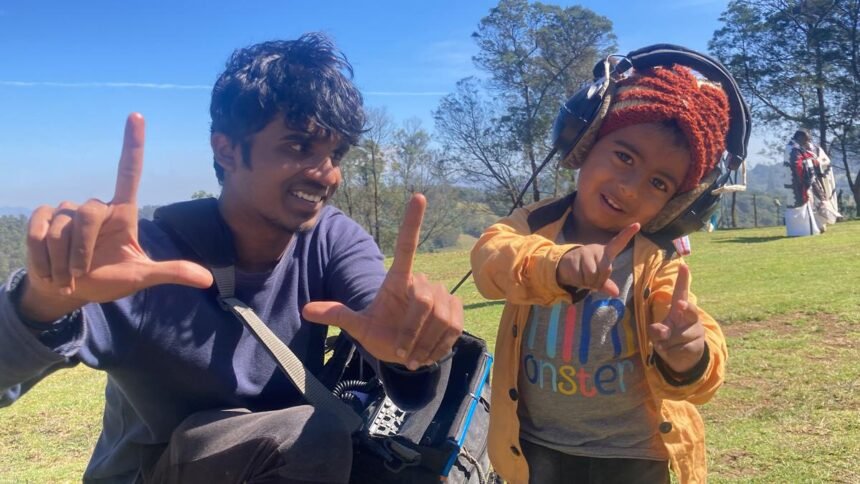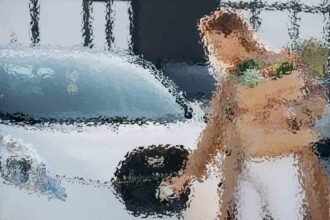[ad_1]

A Harikrishnan, sound engineer of the film at a Toda mund in Udhagamandalam
| Photo Credit: Special Arrangement
A rush of icy cold wind hits the face of a Toda man as he sprints inside a forest, catching his breath only to be interrupted by a tree-tapping-rat-tat-tat of a woodpecker that sounds like loud hammering. Cut to another shot, he uses a woodcutter’s axe and hits a tree few times, takes in the sights of a picturesque lake before he begins his mission, a hunt for an exotic flower. Sound engineer A Harikrishnan follows him and records the din of the forest. “It was an experiment in sync sound that paid off,” says A Harikrishnan about his work in Mayan, a fictitious short film on the Todas, one of the earliest tribes of The Nilgiris whose customs are all associated with Nature.
A Toda mund
| Photo Credit:
Special Arrangement
Mayan, written and directed by Surya Seenivasan, has done the festival circuit, starting with the Cannes and winning recognitions at several other film festivals in Kolkata, Mumbai and Udhagamandalam. Harikrishnan says the film, shot in Udhagamandalam, is an ode to the Toda way of life, their culture that revolves around their cattle herds and the dairy temples, and varied rituals. The Todas also believe that several peaks, slopes, shola thickets, trees, plants, rocks, rivers, pools, swamps, paths, streams and caves are sacred. “Though the protagonist is lost in the forest, he picks up cues from his childhood stories, and traces of art on rock surfaces and caves that guide him to reach the exotic flower,” describes Harikrishnan, who is an alumni of A R Rahman’s KM Music Conservatory. Though he has worked as an assistant sound engineer in Stonebench Productions like Penguin, Bhumika and Tovino Thomas film Vazhakku and many short films in horror and mystery genre, he found Mayan refreshing to work on.

Film poster
| Photo Credit:
Special Arrangement
“The varying textures in sounds of Nature open up a whole new experience. All the live shots used sync sound to go with the flow. We also recorded Toda women singing while doing embroidery. While editing, I collaborated with Sriram and Vikram, studio recordists, to recreate some of the sounds like rustling of dry leaves and wet leaves by setting up a forest floor at the studio.”
Cast and crew of the film
| Photo Credit:
Special Arrangement
When Harikrishnan began his audio recording exercise, it was decided that the film would be simultaneously shot. A sound designer’s role is to give an auditory texture to the narrative, he explains adding that he has built a library of over three lakh sounds, of cars, water falls, bird songs, to name a few. “We bring that magic touch, an untold emotion that strikes an instant chord with the audience. We do the real work to add the pause and effect to enliven the mood and build the required ambience, feel, and depth in a shot.”

Harikrishnan, who is currently working on Nakkalites, a popular satire web series and a feature film from his studio in Coimbatore, aims to support independent films as it gives him the freedom to think out-of-the-box. “I have documented the sounds of Coimbatore, of chaotic traffic on the city roads, of push cart sellers, railway station and landmark locations like R S Puram, Race Course, Town Hall and Gandhipuram. These real sounds will come in handy while working on short films made here,” says Harikrishnan who has already started work on yet another short film, this time on how eucalyptus trees threaten the livelihood of the Todas.
Follow @aylarecords on Instagram to know more
[ad_2]
Source link








